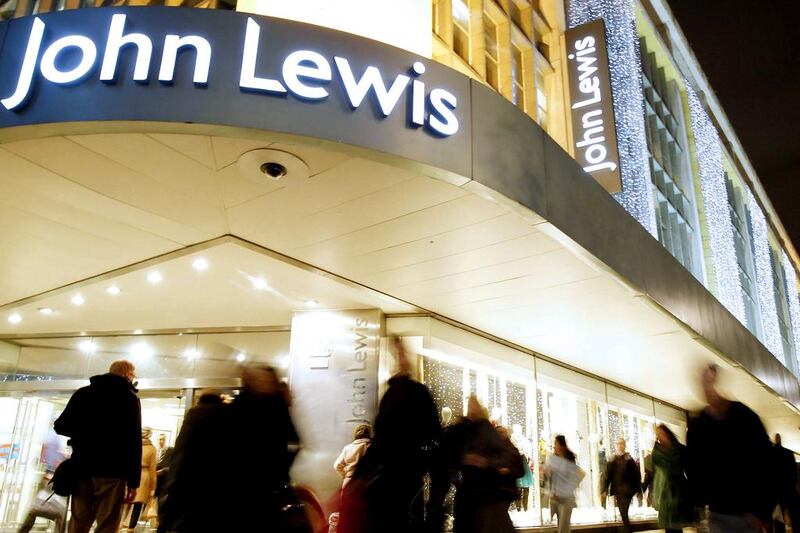John Lewis has chartered extra ships to ensure it gets stocks delivered in time for the Christmas shopping rush as staff shortages and supply chain problems continue to blight the industry.
The retail giant has announced its plan to avert a backlog of deliveries as it warned of “significant uncertainty” in the lead-up to the busiest trading season.
UK retailers are facing a double threat of falling sales and global supply crunch, making it tough for stores to obtain goods ahead of the Christmas shopping season, data showed today.
Retail sales dropped 0.9 per cent in August from the month before, with the grocery sector hit by people returning to restaurants and pubs after the lifting of virus curbs, the Office for National Statistics said.
A significant number of retailers are additionally unable to source enough products because of the supply crunch caused in large part by a shortage of lorry drivers, owing to Covid and Brexit fallout.
The ONS said that 6.5 per cent of retail companies were unable to obtain materials, goods or services needed from within the UK in the two weeks to August 22.
Department stores were the hardest hit at 18.2 per cent, followed by clothing outlets at 11.1 per cent.
Economists said the gloomy news spells Christmas trouble for retailers.
"A perfect storm of labour shortages, supply chain issues and increased demand will continue to test retail leaders," said Oliver Vernon-Harcourt, head of retail at accountancy group Deloitte.
"Christmas will be impacted by these headwinds; there will very likely be shortages in some categories which will force consumers to make different choices."
The ONS said that almost 9.0 per cent of retail businesses were forced to change suppliers or find alternative solutions.
"Managing price increases and stock shortages will be one of the main challenges retail leaders will have to address in the coming months," Mr Vernon-Harcourt said.
John Lewis Partnership, which runs 34 department stores and 331 Waitrose supermarkets across the UK, has put in steps to protect its deliveries.
Dame Sharon White, chairman of the partnership, said John Lewis would join other businesses in pulling out all the stops to make sure Britons would not experience disruption to Christmas shopping.
The addition of extra sea freight will speed up delivery of seasonal goods, such as Christmas trees.
Ms White said: "Traditionally, our profits are skewed to the second half of the year because of the importance of Christmas, especially in John Lewis.
"As we look ahead, there is significant uncertainty.
"Like the whole of retail, we are managing global supply chain challenges and labour shortages.
"We are seeing inflationary pressures, which we expect to persist."
Ms White said bosses were “acting fast” to ensure the smooth delivery of items before Christmas shopping begins.
She said the chain had introduced a range of measures to help address labour shortages.
"We've raised wages for heavy goods vehicle drivers and we're really beginning to see the results of that."
The retailer posted its half-year results, recording a pre-tax loss of £29 million ($39.97 million) for the six months to July 31.
This was significantly lower than the £635m loss for the same period last year, which included the first lockdown.
In the first half of this year, sales for the group rose by 6 per cent, aided by strong demand for homeware, fashion, nursery furnishing and Waitrose online grocery orders.
Meanwhile, UK inflation has surged to a near-decade high, according to statistics released by the Office for National Statistics this week.
Last month it rose at the fastest pace on record amid price increases in supermarkets and restaurants.
The ONS said Consumer Prices Index inflation jumped from 2 per cent in July to 3.2 per cent in August – the highest since March 2012.
It was the largest increase since records began in 1997.
The ONS said it was largely due to discounts across the hospitality industry last August under the government’s Eat Out to Help Out scheme.







